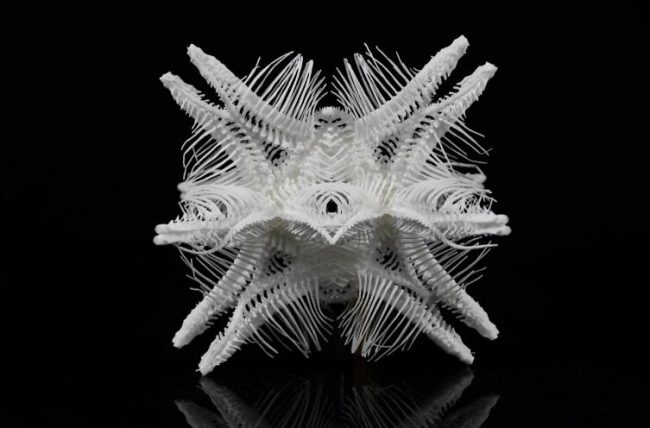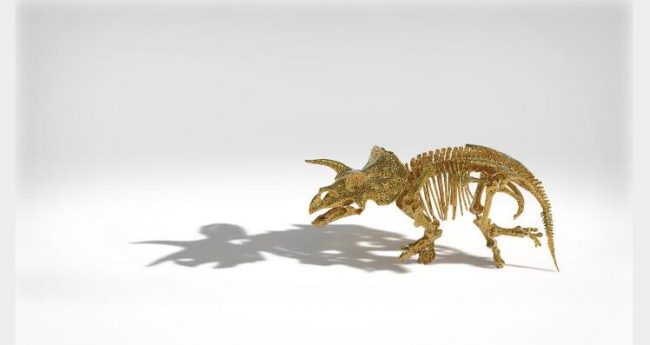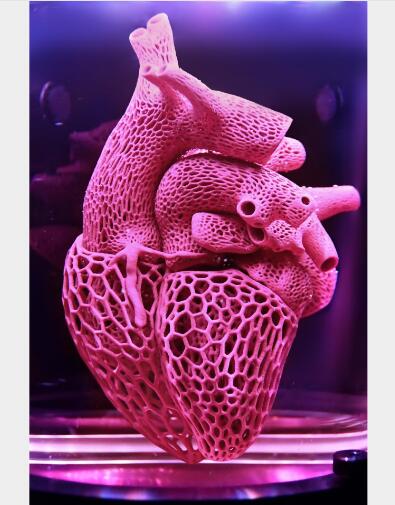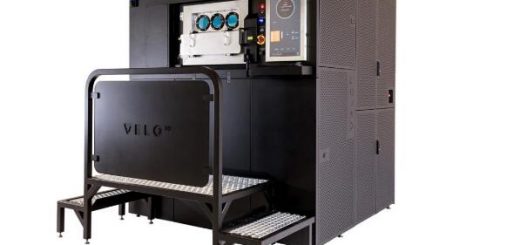HP Collaborates with Amy Karle, Leading 3D Printing Artist and Futurist
March 17, 2020, this Women’s History month, HP is showcasing a collaboration with Amy Karle, a leading artist, provocateur and futurist. Regarded as one of the most influential women in the 3D printing industry today and one of the BBC’s 100 Women, Amy Karle is leveraging the power of 3D printing to reinvent creating art in amazing new ways. HP’s 3D Printing & Digital Manufacturing organization and HP Labs are working together with Amy Karle to provide the most advanced 3D printing solutions to make her creative art expression a reality.
 Image via HP
Image via HP
“I love the exploration and development that 3D printing offers: a new opportunity for thinking, a new way to reshape what we create, and a completely new approach to expression in which digital, physical and biological systems are interwoven,” said Amy Karle. “HP 3D Printing enables me to bring this vision to life by opening up new artistic possibilities not achievable before.”
Amy Karle’s mission is to positively impact others, raise consciousness and contribute to social, political, and technical development by making and sharing her work. As an artist and designer, Karle uses HP Multi Jet Fusion technologies which include the Jet Fusion 5200 and 580 printing systems to build her pieces, creating art that catalytically examines material and spiritual aspects of life and opens minds to future visions of how technology could be utilized to unlock human potential.
Amy Karle Smithsonian Collaboration: “Regeneration Through Technology” Sculpture Series
Leveraging Smithsonian 3D scan data of a fossilized Triceratops skeleton as the basis of inquiry into the past, present, and future, Karle recently debuted artworks inspired by scans the Smithsonian Digitization Office made of an object in the collection of the Smithsonian’s National Museum of Natural History in conjunction with the launch of the Smithsonian Open Access Initiative.
 Image via HP
Image via HP
The basis for this collection by Karle is “Hatcher,” a 66-million-year-old Triceratops skeleton in the National Museum of Natural History who made history as the first “digital dinosaur.” In the context of cutting-edge digital, biotechnological, computational, and additive manufacturing developments, Karle expands on Hatcher’s legacy by opening an inquiry into what representation and composite with computer-assisted technology means for us now and into the future. See Karle’s artworks for this collaboration, “Deep Time and The Far Future,”3D printed by HP here.
Amy Karle “The Heart of Evolution?”
Questioning human modification at the dawn of the biotech era, and how future organs and the augmented body could be created and function in the future, Karle’s “The Heart of Evolution?” sculpture takes shape of what heart vasculature could look and work like with enhanced design, housed in the mechanical womb of a scientific bioreactor. The artist chose a heart shape because it is a major organ often associated with the emotions to heighten the viewer’s awareness of synthetic biology’s potential implications on humanity and evolution – both positive (for healing and enhancing) and negative.
 Image via HP
Image via HP
The work questions life, death, life extension, enhancement, and transformation at a time of humans and technology merging. The work points to the importance of considering and collaboration with living systems; and serves to open minds to visions of how design, generative engineering, 3D printing, and bioprinting can heal and enhance humanity. Now on display at the Mori Art Museum in Tokyo, Japan.
Source: HP




Recent Comments